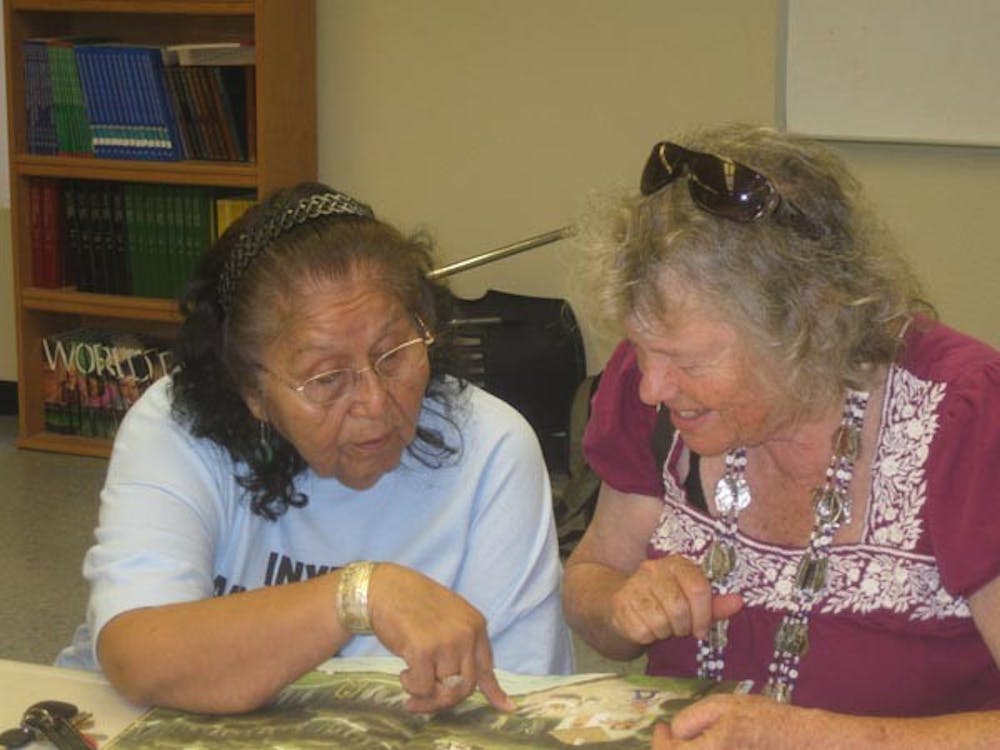Hoping to pressure Sen. John McCain during Congress’ lame duck session, former and current undocumented ASU students have planned a hunger strike Tuesday outside the senator’s Phoenix office.
The act is all part of an effort to persuade McCain to vote for the DREAM Act, legislation to create a pathway to citizenship for undocumented residents younger than 35 who were brought to the country before the age of 16.
The act specifies that in order to qualify for citizenship, an undocumented resident would need to graduate high school or obtain a GED and also complete at least two years of college or serve in the military.
Both Republicans and Democrats have presented the legislation before Congress since 2001, but it has never reached the president’s desk.
Dulce Juarez, an ASU graduate student, will start the fast Tuesday while the rest will join her on Thursday, said Dulce Matuz, a 2009 electrical engineering graduate and the policy adviser for the Arizona DREAM Act Coalition.
The coalition is a group of mostly undocumented college students who lobby for the DREAM Act’s passage.
So far, a total of three former and current ASU students will participate, as well as Matuz’s mother, and they hope to last at least nine days, said coalition member Daniel Rodriguez, a 2008 political science and English literature graduate.
“Each day represents each year it has failed,” said Celso Mireles, a 2009 business management graduate who is organizing and participating in the fast.
This year will mark 10 years of presenting the legislation to Congress, and Mireles said he is hopeful it can pass this time.
“We need [McCain’s] leadership,” Mireles said.
Mireles said he hopes that McCain not only pays attention to the fast, but also changes his mind.
“If we can’t persuade him through logical means … maybe we can persuade him through the spiritual sacrifice and physical sacrifice,” he said.
Mireles said his parents are worried about the fast and the effects on his health, but they support the cause.
There are an estimated 114,000 undocumented students in Arizona out of 2.1 million nationwide, according to a report by Migration Policy Institute, a Washington, D.C., think-tank.
Both Speaker of the House Nancy Pelosi and Senate Majority Leader Harry Reid have said the DREAM Act will be voted on in Congress before the session ends in early December.
McCain has supported the DREAM Act in the past, but has since opposed it. In an e-mail sent to The State Press in September, the senator said Arizonans want a secure border before immigration laws are altered.
“Until the border is secured, I do not believe Arizonans would support any efforts to reform our immigration laws,” he said.
McCain’s office did not return recent calls or e-mails from The State Press.
Mireles noticed other fasts that are going on around the country, specifically the one in San Antonio, Texas, where undocumented students are trying to persuade Sen. Kay Bailey Hutchison to support the DREAM Act as well.
The Arizona DREAM Act Coalition will announce the fast during a press conference Tuesday at noon at the Memorial Union on ASU’s Tempe campus.
They also planned a rally outside the Memorial Union during and after the press conference and are expecting at least 30 people, said Israel Araujo, the president of the Arizona DREAM Act Coalition.
In September, a Rasmussen poll showed that 52 percent of likely voters support a pathway to citizenship for undocumented children who complete two years of college. In contrast, 36 percent disagreed with creating a pathway to citizenship.
Regarding the military aspect, 78 percent of those polled support a chance to earn citizenship if the child brought here illegally wishes to join the military, while 14 percent disagree with the measure.
Reid presented a military budget bill to the Senate back in September that included the DREAM Act and a provision to end the “don’t ask, don’t tell,” policy, which prevents gays from openly serving in the military.
Because of political disagreements over how the DREAM Act was presented as an amendment to the military bill, and the provision to end the “don’t ask, don’t tell” policy, Republicans voted against a debate, essentially preventing the DREAM Act from advancing.
This time around, the DREAM Act will be presented as a stand-alone bill in both chambers, and Mireles believes it has a better chance of passing.
“I’m hoping the politics don’t get in the way,” he said.
Reach the reporter at uriel.garcia@asu.edu





